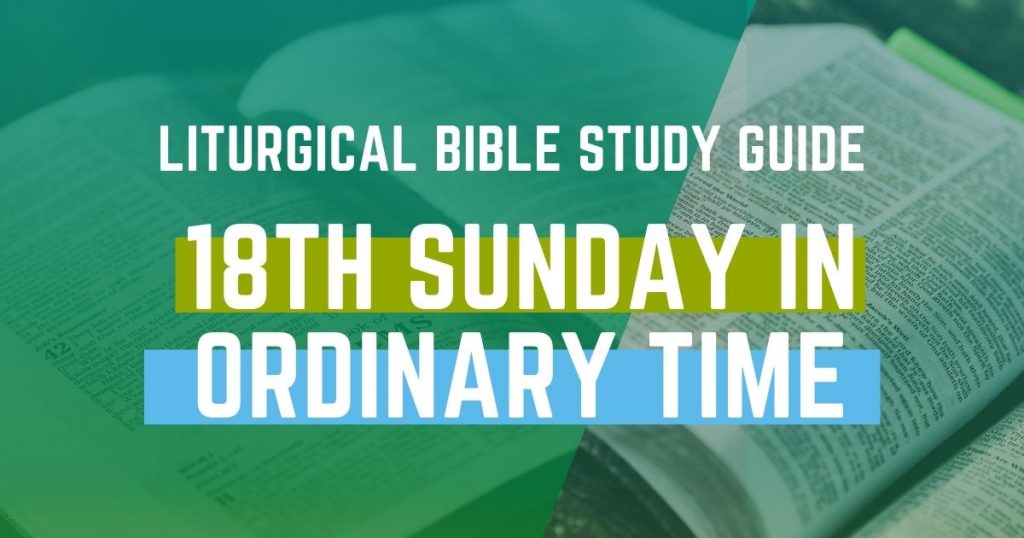1st Reading – Ecclesiastes 1:2, 2:21-23
Ecclesiastes is fourth in the order of the wisdom books of the Old Testament [the others being Job, Psalms, Proverbs, and after Ecclesiastes, Song of Songs (Song of Solomon/Canticle of Canticles) and Sirach complete the wisdom books]. Ecclesiastes is the Greek equivalent of the Hebrew title. It appears in many older Bibles under this Hebrew name, Qoheleth, which means “preacher” and comes from the start of the book “The words of the preacher, the son of David, king in Jerusalem.” Qoheleth is not a proper name, it describes the position of one who speaks in an assembly. Hence Ecclesiastes is usually understood to be a qualified teacher, the leader of an assembly of wise men. The reference to his being the son of David is typical of pseudoepigraphical literature’s tendency to attribute the work of an unknown author to some illustrious person in order to give it greater credence. In this instance, the sacred writer chose to put the fruit of his reflections under the patronage of the most outstanding of Israel’s wise men. Ecclesiastes is one of the five scrolls which were read on the feast of Tabernacles, the others being Song of Songs, Ruth, Lamentations, and Esther. The book’s twelve chapters all deal with the same theme – the uselessness of human things, which it describes as “vanity of vanities”. Put another way, it discusses the problem “What value has this earthly life for man?” Regarded from the viewpoint of the pessimist, this earthly life has no value. All is vanity. All human endeavor is a “pursuing of the wind.” There is an eternal sameness in things.
But we must remember that there is another aspect to life. Not everyone looks upon it with the eyes of a pessimist. Man can be relatively happy. Therefore let him enjoy life and the good things which it offers: but let him be mindful of his end; let him fear God and keep His commandments.
2nd Reading – Colossians 3:1-5, 9-11
In last week’s epistle reading we heard Saint Paul instruct us about baptism (the circumcision of Christ) being the rite of initiation into God’s family in the New Covenant, the rite in the Old Covenant having been circumcision of the flesh. Today we hear the beginning of his instruction to us on living the Christian life. The part we hear today appears to be an early baptismal instruction.
Gospel – Luke 12:13-21
Since our encounter with Jesus last week where He gave us the “our Father,” a prayer which is distinctive to Christians, He has driven a demon out of a mute man and has been accused of using the power of Beelzebul, has taught several parables and pronounced six woes on the Pharisees. During this time, a crowd of many thousands has gathered and Jesus is now teaching them. What we hear today is the parable of the rich fool, a parable which is found only in the Gospel of Luke.


